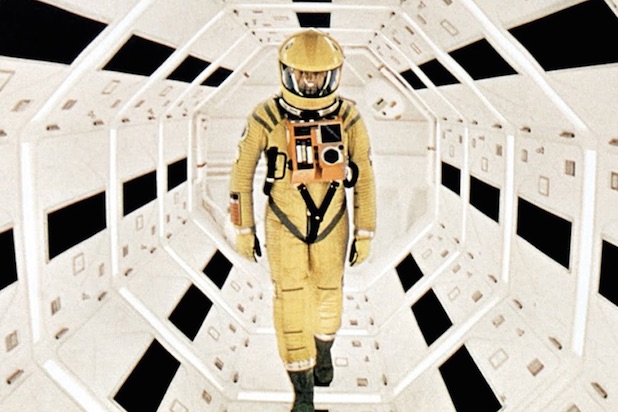

With 2001, Kubrick not only opened up a market for commercial science-fiction blockbusters - Star Wars, Close Encounters, Alien, etc. Philosophical & Poetic Science-Fiction Films Its origin and purpose might no longer be a total mystery, but it has nevertheless captivated audiences and creators alike with the promise of something bigger and grander than our wildest imaginations. We’ve decided to catalogue the ways 2001 has influenced science fiction and pop culture, and how so many artists have kept its legacy alive with tips of the hat, pointed tributes, or spiritual connections. The film perfectly embodies the spirit of space exploration, complete with the awe and terror of potentially discovering that we’re not alone. I’m afraid I can’t do that.” HAL singing “Daisy Bell” as he dies the psychedelic Star Gate sequence the Star Child floating above the Earth, gazing at the planet below - it’s because they’re designed to inspire wonder and contemplation, rather than a simple explanation. If you’ve ever pondered why so many moments in 2001 are iconic - Dawn of Man the Monolith the bone-satellite match cut the Lunar landing scored to “The Blue Danube” “Open the pod bay doors, HAL.” “I’m sorry, Dave. The Best Dystopian Films Released Between Blade Runners By the end of the 20th century, 2001 was rereleased into theaters three separate times, and now, 50 years later, it’s considered Kubrick’s magnum opus and a pioneering work of film art. Yet, 2001 had a noticeable impact on the culture, garnering acclaim from counterculture audiences who responded to the film’s visual style and philosophical implications, as well as a new generation of budding film directors - Spielberg, Lucas, Scott (Ridley) - who were mesmerized by Kubrick’s vision. Upon general release, critical reaction was mixed, with most praising the effects but criticizing the film’s pacing and steely tone (Pauline Kael and Andrew Sarris, who were “rival” critics at the time, both hated the film, while a young, green Roger Ebert championed it). In April 1968, 2001: A Space Odyssey had its world premiere in Washington, D.C. After they spent two years on the novel and script, Kubrick embarked on a two-year production process that went over budget and behind schedule, largely due to his perfectionist tendencies (he was making crucial cuts just days before his film’s general release). The two men were determined to avoid fantastic, exaggerated depictions of space, instead emphasizing realism and scientific accuracy to properly buttress their ideas. Clarke to develop a novel and screenplay in tandem inspired by Clarke’s short story “The Sentinel,” about the discovery of a mysterious artifact on the Moon left behind by ancient aliens. Strangelove, director Stanley Kubrick decided that he wanted to make a film about “Man’s relationship to the universe.” He teamed up with acclaimed science-fiction writer Arthur C. In 1964, fresh off the heels of his Cold War satire Dr.


 0 kommentar(er)
0 kommentar(er)
